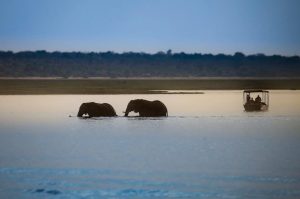Establishment of Serengeti National Park
Historical Background of Serengeti National Park
The Serengeti National Park, located in Tanzania, is one of the most iconic and renowned wildlife reserves in the world. The park covers an area of approximately 14,750 square kilometers and is home to a diverse range of flora and fauna. The history of the Serengeti National Park dates back to the early 20th century when it was established as a game reserve by the German colonial authorities in 1921.
Over the years, the park has undergone various changes and developments, including its designation as a national park in 1951. The Serengeti National Park was officially established to protect the diverse ecosystem of the region, including the migration of millions of wildebeest, zebras, and other wildlife species.
Process and Significance of Establishing Serengeti National Park
The establishment of the Serengeti National Park was a significant milestone in the conservation efforts of Tanzania. The process of creating the park involved various stakeholders, including the government, local communities, and conservation organizations. The main goal of establishing the Serengeti National Park was to protect the unique biodiversity of the region and ensure the long-term survival of its wildlife populations.
One of the key reasons for the creation of the Serengeti National Park was to preserve the natural habitat of the annual wildebeest migration, which is one of the most spectacular wildlife events in the world. The migration involves millions of wildebeest, zebras, and other animals moving across the plains of the Serengeti in search of food and water. The establishment of the park has helped to safeguard this natural phenomenon and ensure the survival of these iconic species.
In addition to protecting the wildlife of the region, the Serengeti National Park also plays a crucial role in promoting ecotourism and sustainable development in Tanzania. The park attracts thousands of visitors from around the world each year, providing a significant source of revenue for the local economy. The tourism industry supports local communities by creating job opportunities and generating income through accommodation, transportation, and other services.
Visitors to the Serengeti National Park can experience the beauty and diversity of the African savanna, including close encounters with lions, elephants, giraffes, and other iconic species. Sunset Africa Safari is a leading tour operator that offers guided tours and safaris to the Serengeti National Park, providing visitors with the opportunity to explore this incredible wilderness and witness the wonders of nature up close.
In conclusion, the establishment of the Serengeti National Park has played a crucial role in the conservation of Tanzania’s wildlife and ecosystems. The park serves as a valuable sanctuary for endangered species and a major tourist attraction, contributing to the country’s economy and promoting sustainable development. For booking requests and more information about visiting the Serengeti National Park, clients can contact Sunset Africa Safari at info@sunsetafricasafari.com.



